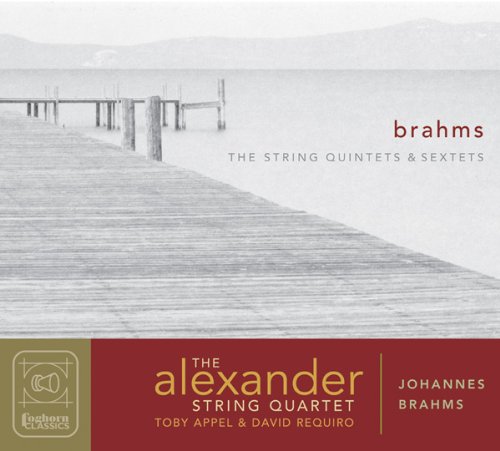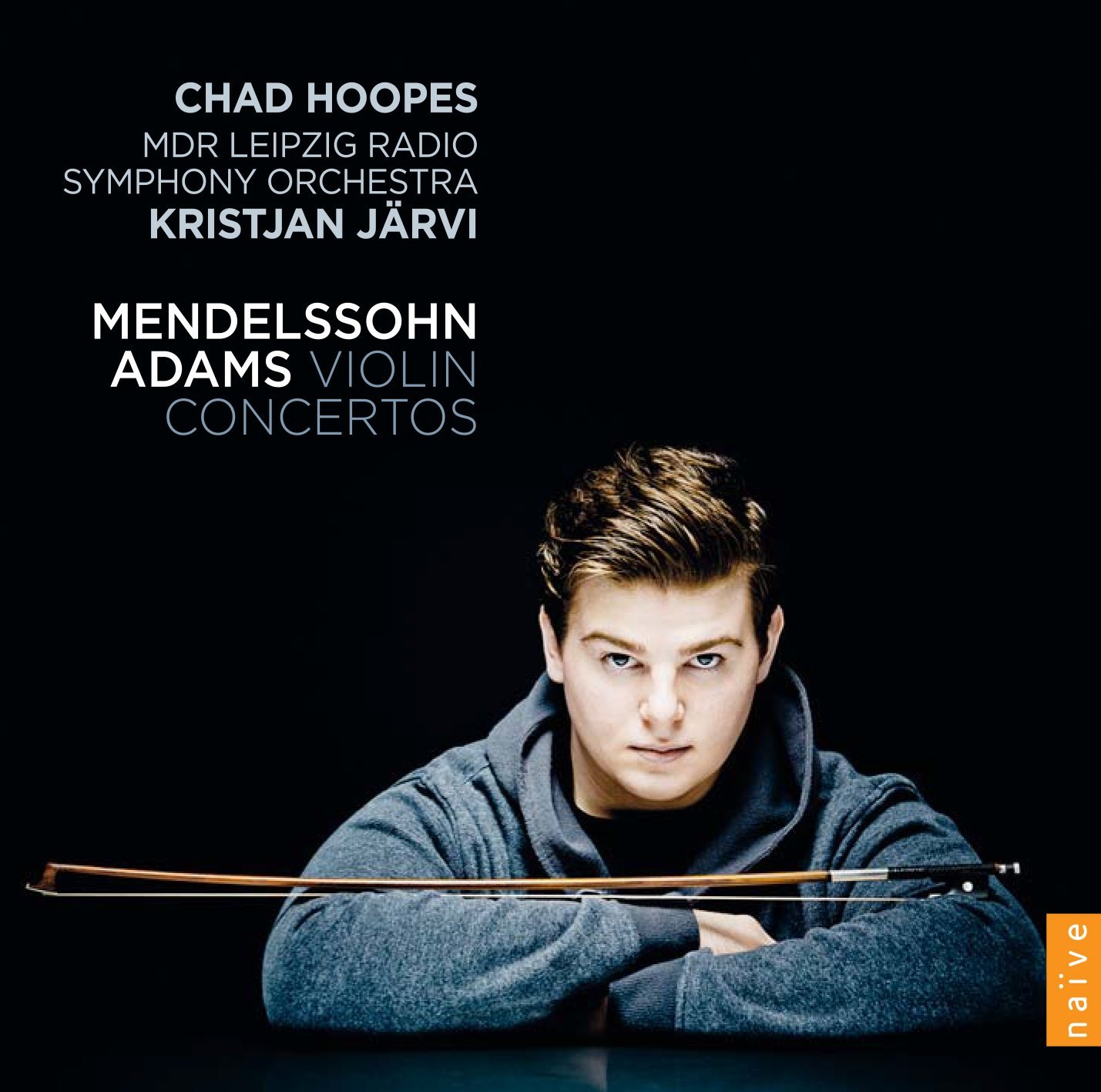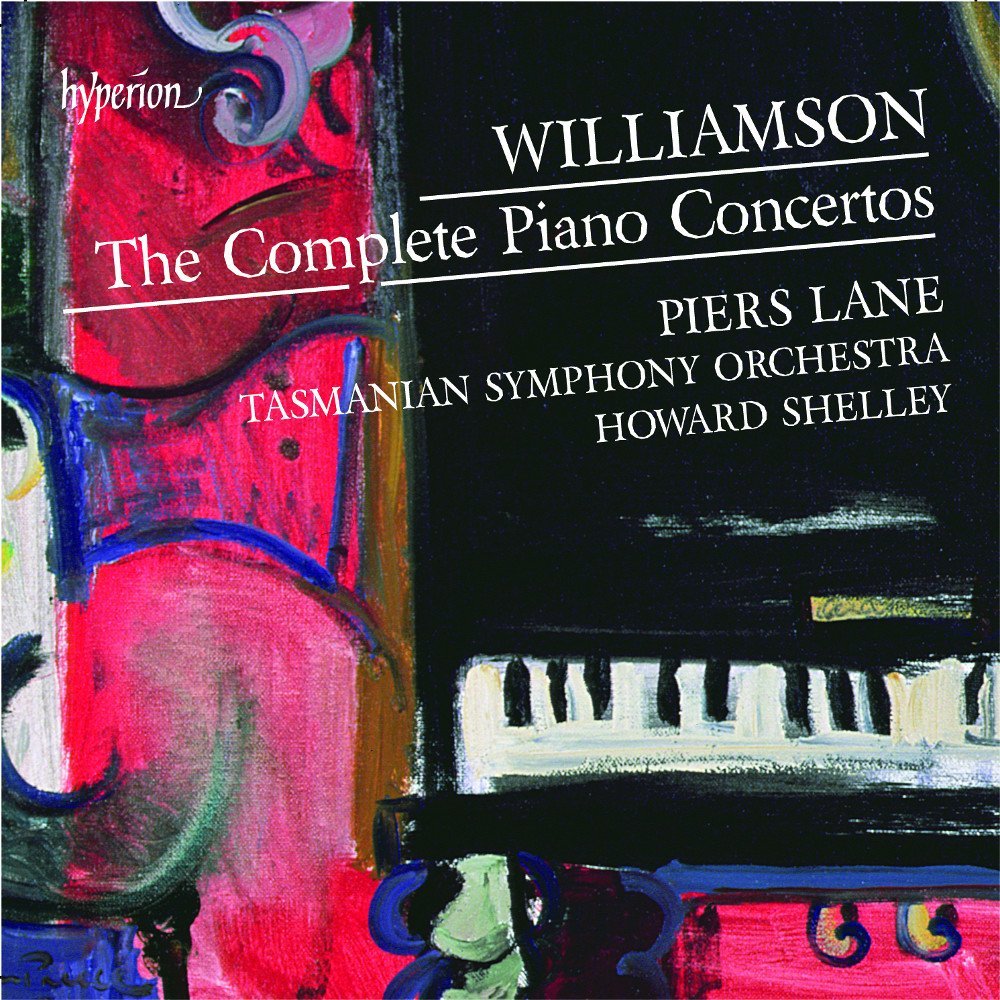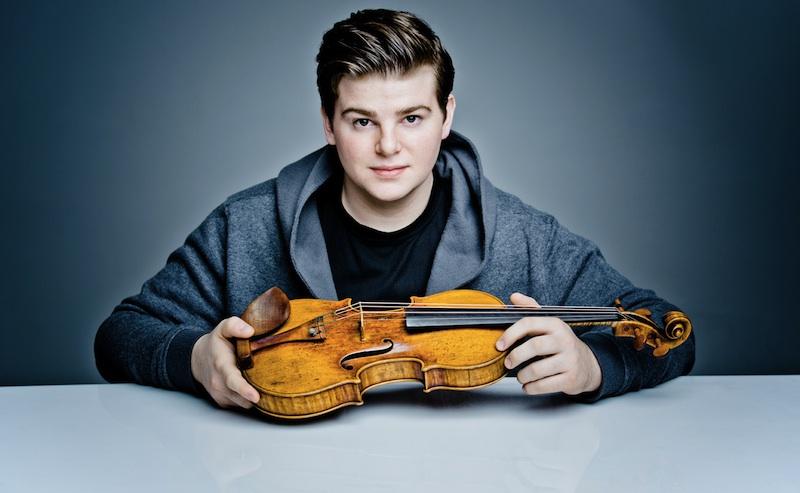
Brahms's music is usually at its best, its most bucolic, when it's moseying along in a major key at a stately tempo. Each of these four large-scale chamber works has an opening movement marked Allegro ma non troppo, so you know that you're in safe hands musically. The two string sextets are early works, but they're technically assured and full of confidence. The Alexander Quartet never disappoint on disc, and they're spectacularly good here. Listening to them ease into the the waltzing second subject of the B flat Sextet's opening movement, or hearing guest violist Toby Appel sing out the Andante's variation theme is a bit like slipping one's toes into a warm bath. Everything's marvellous – the intonation flawless, the tempi judged to perfection. Wallow in the good natured finale, and enjoy the glorious swelling in the coda, as if we're suddenly listening to a chamber orchestra. The G major Sextet is as impressive. Brahms seems to recall Schubert, though the Alexanders don't overplay the music's bittersweet underside.
There's even greater fluency in the two mature string quintets, coupled with delicious, autumnal sonorities. The F major work's slow movement is brilliantly sustained, and the finale's contrapuntal textures are given space to breathe. This set is capped by a remarkable performance of Brahms's late G major Quintet. Everything works, with the players casting fresh light on a big-boned, amiable masterpiece. A zesty Vivace closes proceedings in uplifting style, the music's generosity of spirit never called into question. A life-enhancing set, nicely recorded and well annotated.
Like Grieg's Piano Concerto or Dvořák's New World Symphony, Mendelssohn's E minor Violin Concerto is one of those pieces that it's easy to take for granted. Chad Hoopes' unaffected new recording is a delight, good enough to convince a jaded listener that this is a great work. Hoopes doesn't make an inappropriately huge sound, his playing is refreshingly unsentimental and clear-sighted. Flowing speeds make the work pass in the blink of an eye, never feeling rushed. What a bold opening this piece has, with the soloist entering almost immediately instead of waiting for an interminable orchestral tutti to pass. Kristjan Järvi works hard to keep Mendelssohn's textures light-footed, and the last movement is a joy. You'll smile.
John Adams' 1993 Violin Concerto makes a fascinating coupling, a wholly successful attempt on its composer's part “to solve the issue of melody”. Which, presumably, means that it's difficult to marry sustained, lyrical ideas with endless chugging ostinati backings, where the energy and forward motion are paramount. We've moved on from the repetitive catchiness of Adams' earlier work and the orchestral writing here is far subtler and more ambitious. Hoopes is magnificent in the central chaconne, proof of Adams' genius in giving new life to conventional musical structures. The ensuing Toccare is more conventionally minimalist, and the closing minutes are phenomenal – the performers seemingly dropping from exhaustion just before you expect to hear the final chord resolve. 
Malcolm Williamson's reputation took a hit after he was unexpectedly appointed Master of the Queen's Music in 1975, and a large-scale Jubilee Symphony wasn't completed in time for the celebrations in 1977. That he was given the role was a surprise in hindsight. You'd expect someone worthy, dutiful and very English to excel in the role, not an extrovert Australian who'd earned a living playing the piano in nightclubs. Williamson had settled in London in the early 1950s. He became a pupil of Elizabeth Lutyens, but moved away from a strict adherence to serial composition. As heard in this fascinating pair of CDs, his influences were wide – Britten, Messiaen, Stravinsky, Bartók, all reflected in music of dazzling fluency and refreshing lightness of touch. Parts of the 1957 Piano Concerto No. 1 could pass for Poulenc, and there's a similar zest to the follow-up, composed over eight days in 1960. No. 3 is the grandest, most imposing of the set, with a mercurial, fiendishly difficult scherzo and disconcerting slow movement offering respite from Williamson's endless motor rhythms. These are superbly realised performances, with Piers Lane a persuasive, virtuosic soloist, accompanied in some style by Howard Shelley's Tasmanian Symphony Orchestra.
Wiliamson's Piano Concerto No, 4 was completed in 1993, 30 years after its predecessor. It receives its first performance on this set, and proves to be a moderately engaging, enjoyable romp. Oddly, the composer's style doesn't seem to have evolved at all, the music merely going through the motions. Far more involving are two other concertante works – a Sinfonia Concertante in F sharp from the early 1960s, its febrile string accompaniment given extra colour by three trumpets. And there's a remarkable, bracing Concerto for Two Pianos written in 1972, the thematic material based on a note-row derived from the names of the soloists who premiered the work. Williamson's compositional mojo operates at full strength, and the work never sounds like an academic exercise. Engaging, entertaining stuff.














Add comment